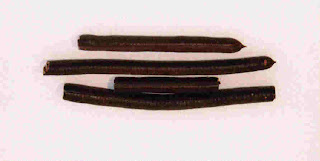Supply, Demand and Price
The CEO of the Perth Mint gave a presentation to the WA chapter of the Australian Institute of Company Directors on Wednesday that I thought I'd share with you. It was only three slides as it was a 10 minute slot. All of the figures behind these charts come from the World Gold Council.
First up is quarterly known supply.
First up is quarterly known supply.

Key take away point is that while the various supply sources change from quarter to quarter, overall it is relatively consistent and more importantly, bears no correlation to the gold price. The second chart is known demand, with an emphasis on "known".

Now this is a bit more variable than supply, but again there is no clear correlation to the gold price. I should note that known investment means coins, bars and ETFs but does not include over-the-counter professional trading.
The fact is that even if we did know the unknowable (such is the nature of the gold market, it is a secretive thing) demand would equal supply anyway. Also consider that the data is not perfect, that classifications may be wrong (eg how much of Indian jewellery demand is really investment demand).
So how to get through this. The next slide takes an admittedly simplistic approach and says lets look at non-investment supply (primary mine supply and scrap - we assume that scrap is not investment bars for example) and take away non-investment demand (industrial and jewellery - again not a perfect assumption about jewellery).
The fact is that even if we did know the unknowable (such is the nature of the gold market, it is a secretive thing) demand would equal supply anyway. Also consider that the data is not perfect, that classifications may be wrong (eg how much of Indian jewellery demand is really investment demand).
So how to get through this. The next slide takes an admittedly simplistic approach and says lets look at non-investment supply (primary mine supply and scrap - we assume that scrap is not investment bars for example) and take away non-investment demand (industrial and jewellery - again not a perfect assumption about jewellery).

What this number then (approximately) represents is net investment. You'll note that when it was negative the price was flat and when it was high the price rose. Not perfect correlation and it could be improved with more accurate source data, but hey, you're getting what you pay for.

Comments
Post a Comment